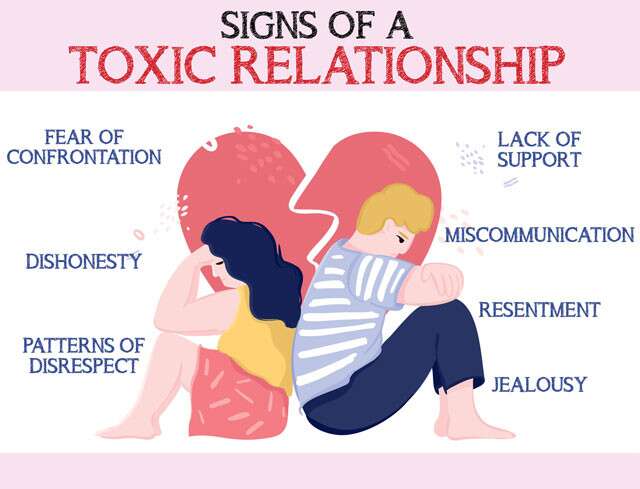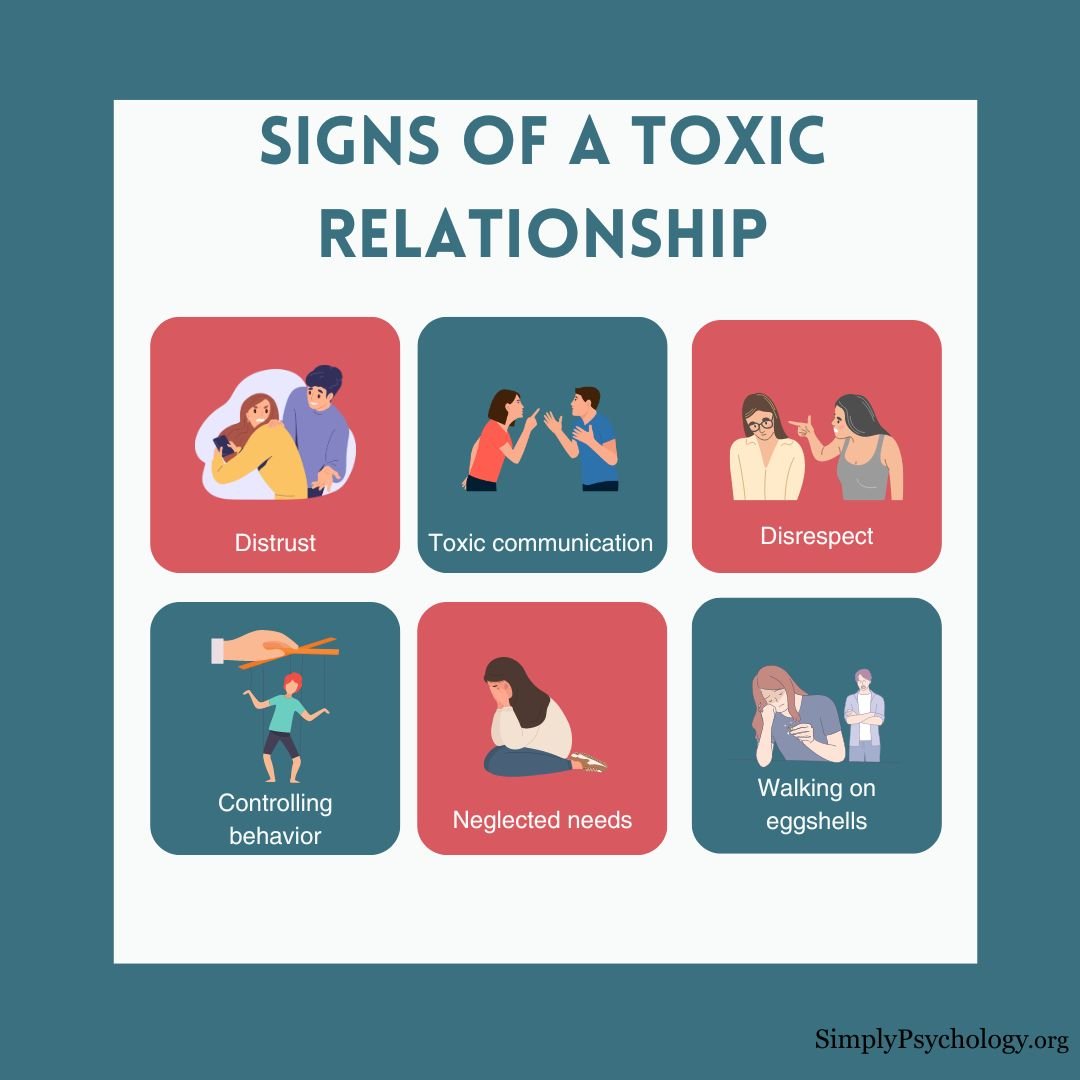
Recognizing Signs of a Toxic Relationship Early On
Changes in Communication Patterns
One of the first indicators that a relationship might be toxic is a noticeable change in communication. Initially, conversations may flow freely, characterized by open sharing and understanding. However, signs of toxicity often emerge when:
- Frequent misunderstandings occur.
- Conversations become negative or critical.
- Your partner stops listening or dismisses your feelings.
For example, Sarah noticed that her partner used to engage enthusiastically in discussions, but over time, he became defensive, often twisting her words. This shift is a clear warning signal.
Manipulative Behaviors to Watch Out For
Manipulative behaviors can also surface subtly but have significant consequences. These may include:
- Guilt-tripping or playing the victim.
- Withholding affection as a form of punishment.
- Making decisions for you without your input.
Take the instance of Mark, who frequently changed his plans without consulting his girlfriend, leaving her feeling powerless. Recognizing these manipulative behaviors early can be vital in safeguarding one’s emotional well-being and establishing healthier dynamics in relationships.

Understanding Emotional and Psychological Effects
Impact on Self-Esteem and Confidence
The emotional toll of a toxic relationship can be profound, particularly when it comes to self-esteem and confidence. Constant criticism or belittlement can erode one’s self-worth. Victims may find themselves second-guessing their decisions, feeling worthless, or believing they are unlovable.
For instance, consider Emily, who was always praised for her achievements before entering a toxic relationship. Over time, her partner’s hurtful comments led her to doubt her abilities. She began avoiding challenges, fearing failure and rejection.
Recognizing Gaslighting and Emotional Abuse
Gaslighting is a particularly insidious form of emotional abuse where the abuser manipulates the victim into doubting their reality. Signs include:
- Denial of events that occurred.
- Frequent trivializing of the victim’s feelings.
- Constantly shifting blame onto the victim.
An example might be Alex, who often told his partner that her recollections of their arguments were misguided, leaving her confused and questioning her perception. Understanding gaslighting is crucial for individuals to reclaim their reality and foster healthy relationships moving forward.

Identifying Control and Isolation Tactics
Monitoring and Restricting Communication
In a toxic relationship, control tactics often manifest in monitoring or restricting communication with others. If you notice your partner frequently checking your phone or questioning your communication with friends and family, this is a clear red flag.
For example, Lisa found herself feeling uncomfortable when her boyfriend insisted on reading her text messages, claiming it was for her own safety. Over time, this behavior led her to isolate from her close friends, fearing judgment or confrontation.
Here are some common signs of restricted communication:
- Listens in on phone calls.
- Sends texts wanting to know your exact location.
- Discourages or prohibits plans with friends.
Limits on Independence and Autonomy
Toxic partners may also impose limits on your independence and autonomy. This can manifest as:
- Controlling what you wear or how you spend your time.
- Deciding which friends are acceptable to keep.
- Discouraging personal interests or hobbies.
Take Jake’s situation where his girlfriend insisted on choosing his weekend plans, leaving him feeling trapped and without agency. Recognizing these control tactics is essential for regaining one’s independence and fostering healthier relationships.
Seeking Support and Setting Boundaries
Reaching Out to Trusted Friends or Professionals
When navigating the complexities of a toxic relationship, seeking support from trusted friends or professionals can be a crucial step. Sharing your experiences with someone you trust can provide comfort and clarity.
Consider Mia, who confided in her close friend about her struggles. This conversation opened Mia’s eyes to the unhealthy patterns in her relationship. Trusted friends can offer perspective, validate feelings, and remind individuals that they deserve better. Additionally, consulting a professional—like a therapist or counselor—can provide structured guidance and coping strategies.
Here’s how to effectively reach out for support:
- Choose someone you trust deeply.
- Be honest about your feelings and experiences.
- Seek professional help if needed, whether through therapy or support groups.
Establishing Clear and Healthy Boundaries
Setting boundaries is another vital aspect of reclaiming your space and well-being. This involves communicating what is acceptable and what isn’t in the context of your relationships.
For instance, Anna realized she needed to tell her partner that she would no longer tolerate criticism about her choices. Clear strategies can include:
- Expressing your needs calmly and directly.
- Being consistent in enforcing your boundaries.
- Being prepared for pushback but remaining firm.
Establishing healthy boundaries empowers individuals to prioritize their mental wellness and fosters healthier interactions in all relationships.

Reflecting on Personal Well-Being and Growth
Prioritizing Self-Care and Mental Health
After navigating a toxic relationship, prioritizing self-care and mental health becomes essential. Self-care encompasses activities that nurture your physical, emotional, and mental well-being. It’s about listening to your needs and reconnecting with your sense of self.
For example, after ending a toxic relationship, Lucy dedicated time each week to practice yoga and meditation. She found that these activities not only helped reduce her stress levels but also allowed her to reconnect with her own identity.
Here are some practical self-care strategies to consider:
- Engage in physical activities you enjoy.
- Schedule regular “me time” for hobbies or relaxation.
- Practice mindfulness or journaling to process emotions.
Growth Opportunities Post-Toxic Relationship
Emerging from a toxic situation can be daunting, but it also offers significant growth opportunities. Many individuals discover newfound strength and resilience that they never realized they possessed.
For instance, James, who felt lost after his relationship ended, began exploring new interests like painting and hiking. These experiences not only boosted his confidence but also helped him develop a more profound sense of self.
Recognizing past challenges as stepping stones toward personal growth can lead to a more fulfilling life. Embracing change and focusing on self-improvement not only enhances well-being but also prepares individuals for healthier future relationships.

Taking Action and Moving Forward
Planning an Exit Strategy
When you recognize the signs of a toxic relationship, the next critical step is to plan an exit strategy. Leaving a toxic environment is often daunting, but having a clear plan can make the process smoother and less stressful.
Take the case of Nina, who realized her relationship was harmfully controlling. She spent time strategizing her exit, including:
- Building a support network of friends and family.
- Saving money discreetly for a potential move.
- Documenting events or behaviors that validate her concerns.
This preparation gave her the confidence she needed to leave safely.
Embracing Healing and Recovery Journey
Once the decision has been made and you’ve exited the relationship, embracing a healing and recovery journey becomes the next essential phase. It’s a time to reflect, heal, and rediscover your identity.
For example, after leaving his toxic relationship, Tom attended a support group, which helped him process his emotions and meet others with similar experiences. Here are some healing steps to consider:
- Engage in therapy or counseling for professional support.
- Participate in community activities or hobbies to forge new connections.
- Practice self-reflection through journaling or art.
By actively engaging in your healing journey, you pave the way for a stronger and healthier you ready to embrace future opportunities.
